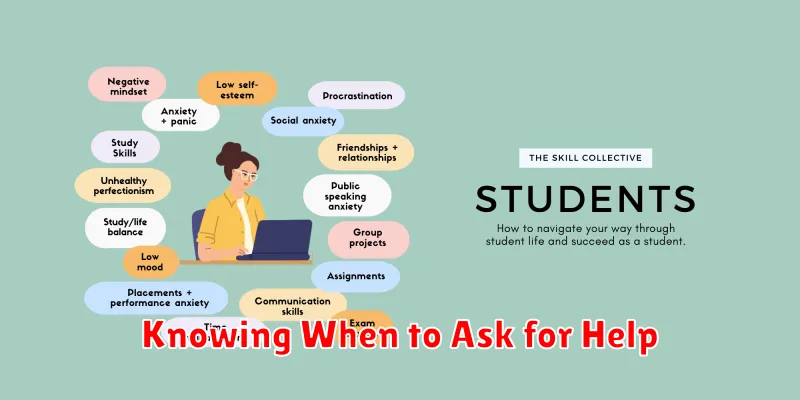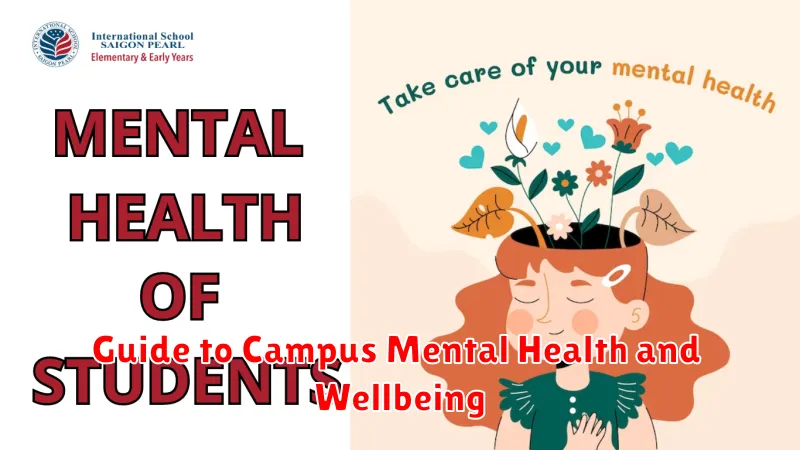College life presents unique challenges to students’ mental health and wellbeing. Juggling academic pressures, social dynamics, financial concerns, and navigating independence can be overwhelming. This comprehensive guide serves as a valuable resource for students seeking to prioritize their mental wellbeing while on campus. We will explore common mental health concerns affecting college students, such as anxiety, depression, and stress. Furthermore, this guide will provide practical strategies, including effective coping mechanisms, information on seeking professional mental health support, and campus resources designed to foster a positive and supportive environment for all. Understanding the importance of campus mental health and wellbeing is crucial for academic success, personal growth, and overall flourishing during this pivotal life stage.
This guide aims to empower students to proactively take charge of their mental health and wellbeing while at college. Whether you are struggling with a specific mental health concern, looking for preventative measures, or simply want to improve your overall wellbeing, this resource provides practical advice and information. We will cover topics such as building resilience, managing stress, cultivating healthy relationships, and accessing campus support systems. By prioritizing campus mental health and wellbeing, students can create a more positive and fulfilling college experience, setting the foundation for future success and overall life satisfaction.
Recognizing Mental Health Issues
Recognizing mental health issues in yourself and others is a crucial first step towards seeking support and promoting well-being. Common signs of mental health struggles can include persistent sadness, changes in sleep or appetite, withdrawal from social activities, difficulty concentrating, and increased irritability. Emotional outbursts, feelings of hopelessness or worthlessness, and substance abuse can also be indicators.
It’s important to remember that experiencing some of these symptoms occasionally is normal. However, if these symptoms are severe, persistent, and are interfering with your daily life, it is essential to seek professional help.
Using Campus Counseling Services
Campus counseling services offer a valuable resource for students facing mental health challenges. These services are typically free or low-cost and staffed by licensed professionals.
Accessing these services usually begins with an initial consultation. During this meeting, a counselor will assess your needs and discuss appropriate support options. This may include individual therapy, group therapy, workshops, or referrals to outside resources.
Confidentiality is a cornerstone of counseling services. Information shared during sessions is kept private, with some legal exceptions such as cases involving harm to oneself or others.
Maintaining Healthy Relationships
Healthy relationships are crucial for overall well-being and contribute significantly to a positive campus experience. They provide support, encouragement, and a sense of belonging.
Building and maintaining these relationships requires open communication, respect, and healthy boundaries. Be sure to communicate your needs and listen actively to others. Respecting differing opinions and boundaries is essential for creating a safe and supportive environment.
Prioritize quality time with loved ones. Even short, meaningful interactions can strengthen bonds. Remember to balance your academic pursuits with social connections for a fulfilling campus life.
Strategies for Stress Management

Managing stress is crucial for academic success and overall well-being. Prioritizing self-care is essential. This includes maintaining a healthy lifestyle through regular exercise, a balanced diet, and sufficient sleep.
Effective time management plays a vital role in stress reduction. Utilize planners, set realistic goals, and break down large tasks into smaller, manageable steps. Practice mindfulness techniques such as meditation or deep breathing exercises to stay grounded and focused.
Don’t hesitate to seek support when needed. Connect with friends, family, or campus resources like counseling services. Remember that managing stress is an ongoing process, and finding strategies that work for you is key.
Promoting Physical Wellbeing
Physical health plays a crucial role in overall wellbeing, impacting both mental and emotional states. Prioritizing physical wellbeing can significantly improve mood, reduce stress, and increase energy levels.
Incorporate regular exercise into your routine. Even short bursts of activity can be beneficial. Explore campus recreational facilities, join intramural sports, or simply take advantage of walking or biking paths.
Nutrition is another key component. Maintain a balanced diet with plenty of fruits, vegetables, and whole grains. Be mindful of portion sizes and limit processed foods and sugary drinks. Campus dining halls often offer healthy options.
Ensure you get adequate sleep. Aim for 7-9 hours of quality sleep per night. Establish a regular sleep schedule and create a relaxing bedtime routine. A well-rested mind is better equipped to handle daily challenges.
Importance of Adequate Sleep
Adequate sleep is crucial for maintaining both physical and mental well-being, especially for college students facing numerous academic and social pressures. A lack of sleep can negatively impact academic performance, increasing the likelihood of lower grades and difficulty concentrating.
Beyond academics, sufficient sleep plays a vital role in emotional regulation. Sleep deprivation can contribute to increased irritability, mood swings, and heightened stress levels. Prioritizing sleep can help students manage stress, improve focus, and enhance overall academic performance and mental health.
Aim for 7-9 hours of sleep per night to support optimal cognitive function and emotional stability. Establishing a regular sleep schedule can also help improve sleep quality.
Mindfulness and Meditation Techniques
Mindfulness involves paying purposeful attention to the present moment without judgment. It can help manage stress, improve focus, and increase self-awareness. A simple mindfulness exercise is to focus on your breath, noticing the sensation of each inhale and exhale.
Meditation practices cultivate mindfulness through various techniques. Guided meditations often involve focusing on a specific image, sound, or sensation. Other forms of meditation encourage focusing on the breath or observing thoughts and emotions as they arise without attachment.
Practicing mindfulness and meditation, even for a few minutes daily, can contribute significantly to improved mental wellbeing.
Dealing with Academic Pressure
Academic pressure is a common experience for college students. Managing this pressure effectively is crucial for both academic success and overall well-being.
Prioritize tasks and break down large assignments into smaller, more manageable chunks. Create a realistic study schedule that includes breaks and time for self-care. Don’t be afraid to ask for help. Utilize professor’s office hours, tutoring services, and study groups.
Remember to maintain perspective. Grades are important, but they don’t define your worth. Focus on learning and personal growth. Practice stress-reduction techniques such as mindfulness, deep breathing, or exercise.
Seeking Peer Support
Connecting with peers who understand your experiences can be invaluable. Peer support offers a sense of belonging and shared understanding, reducing feelings of isolation.
Student-led support groups provide safe spaces to discuss challenges, share coping strategies, and build connections. These groups often focus on specific issues, like stress management or academic pressure.
Mentorship programs pair you with experienced students who can offer guidance and support. They can provide insights into navigating campus life, academics, and personal challenges.
Knowing When to Ask for Help

Recognizing when you need support is a crucial step in maintaining your well-being. Don’t wait for a situation to become overwhelming. Reaching out is a sign of strength, not weakness.
Consider seeking help if you are experiencing:
- Persistent sadness or hopelessness
- Difficulty concentrating or making decisions
- Changes in appetite or sleep patterns
- Increased anxiety or irritability
- Loss of interest in activities you once enjoyed
- Thoughts of self-harm or suicide
Even if your concerns don’t perfectly match these examples, trust your instincts. If something feels off, it’s always better to reach out and talk to someone.

